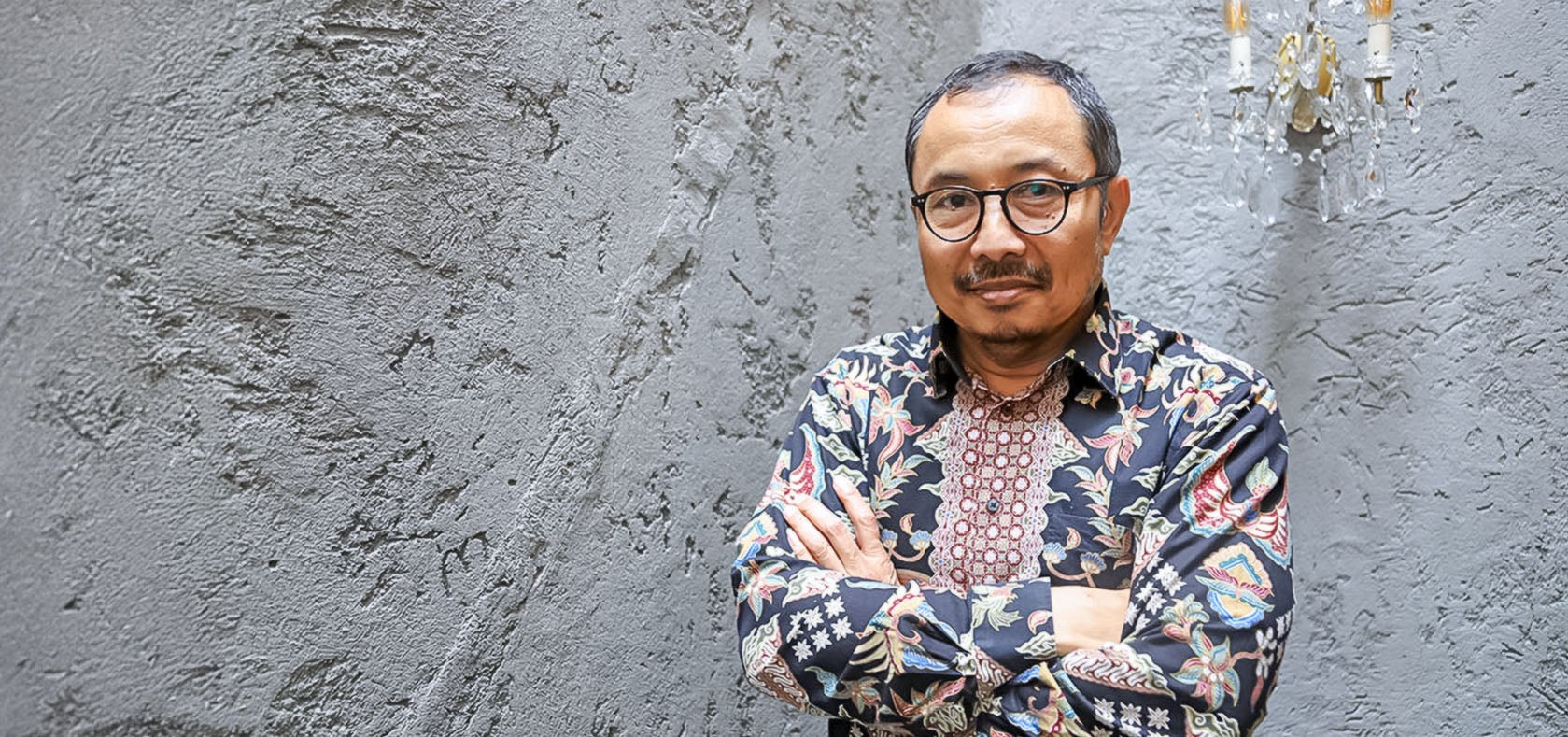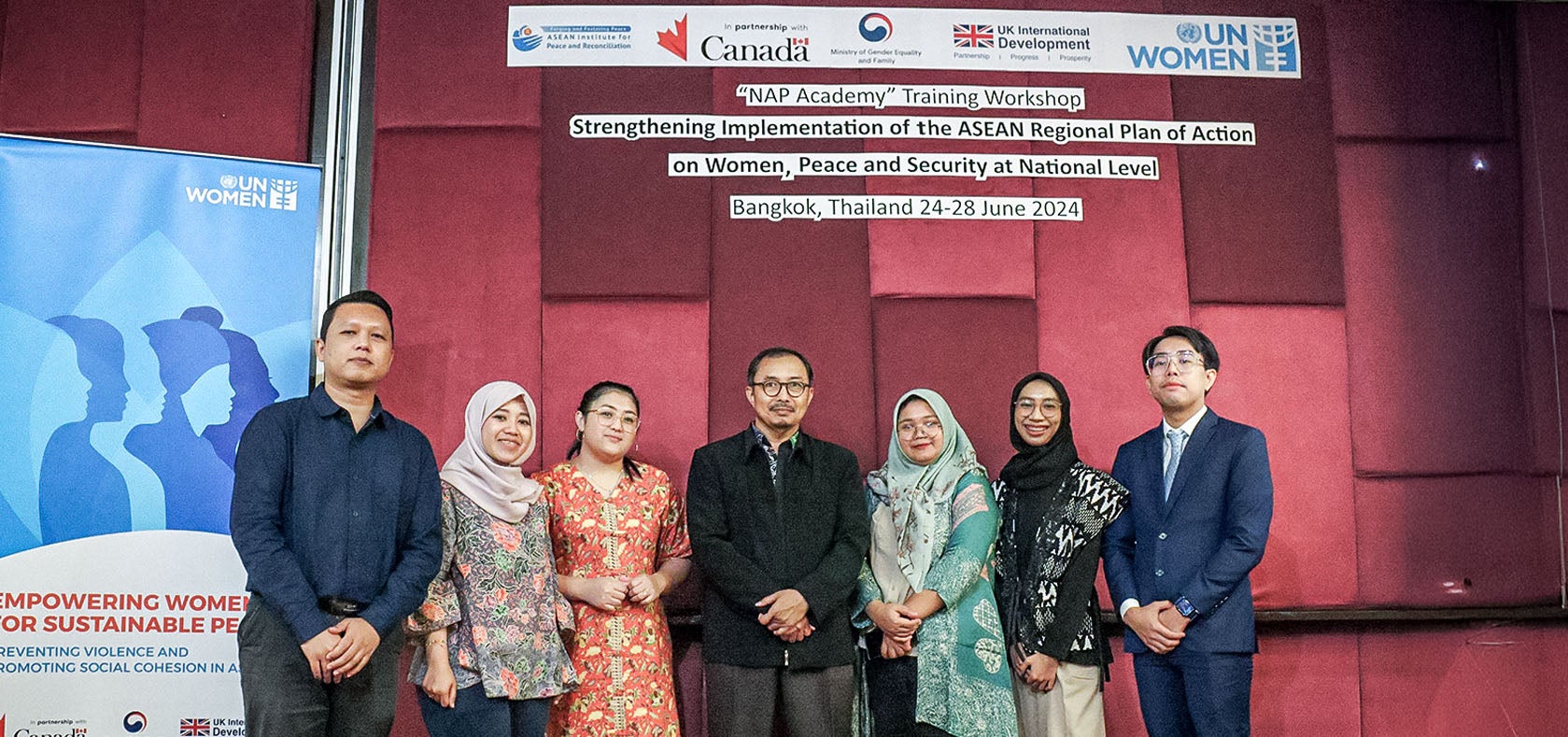Take Five: “Indonesia must share more experiences on Women, Peace and Security with fellow stakeholders in ASEAN countries.”
Date:
Interviewed by Yoomi Jun

Asril is Assistant Deputy Minister on Disaster Mitigation and Social Conflict, Coordinating the Ministry of Human Development and Cultural Affairs, Indonesia. The Ministry coordinates the National Action Plan on Women, Peace and Security (WPS) to implement United Nations Security Council Resolution 1325 (2000) on promoting women’s participation in preventing and resolving conflicts. In June 2024, Asril attended the National Action Plan Academy (NAP Academy) for Southeast Asia country representatives to learn about good practices in localizing the WPS agenda. ASEAN Institute for Peace and Reconciliation and UN Women organized the workshop.
What was your key takeaway at the regional National Action Plan Academy?
We acknowledged that there are WPS issues that are not addressed by the current NAP WPS such as conflicts that often include violence, which are actually in the realm of WPS. Also, the issue of disaster has not been accommodated as terrorism, climate change and most recently cyber threats.
Also, there was an internal agreement among Indonesian participants that we need to improve the NAP with a detailed action plan including target results.
Thanks to NAP Academy, our determination to improve the NAP is even stronger. We want to truly implement the WPS agenda encompassing disaster, climate change, terrorism, human trafficking and cyber security.
Could you share the results of Indonesia on the women, peace and security (WPS) agenda?
We have succeeded in encouraging several local governments to issue legal umbrellas in the context of implementing the national action plan in their respective regions. There is one more achievement – how to ground women's role in peace. This was done by civil society organizations (CSOs) in several places. With the issuance of Presidential Regulation No. 18 of 2014, which is the policy foundation of the NAP WPS, it became legitimate for some CSOs and development partners to provide socialization and training on how to empower women to build peace in conflict and to manage disasters.
Lastly, the government launched a report and data on the implementation of nearly a decade-long NAP WPS on International Women’s Day in 2024. It was also the first report of NAP WPS implementation delivered to the President.
What is the success factor in promoting and implementing women, peace and security agenda in Indonesia?
When we draft the policy, we open the door to the widest possible participation for all parties, and we as policymakers must also be open-minded. Effective coordination is important, too.
As UN Women noted, our current achievements, including compiling a report on nearly a decade of implementation of the National Action Plan on WPS, were made possible through strong coordination by the government, especially the trio: the Coordinating Ministry of Human Development and Cultural Affairs, the Coordinating Ministry of Political, Legal, and Security Affairs, and the Ministry of Women Empowerment and Child Protection.
The Government cannot do everything ourselves. We are supported a lot by CSOs and Government Partners. At NAP Academy, Indonesia can share experiences and also increase the capacity for Women, Peace and Security through networks with fellow stakeholders in ASEAN countries.

Are there any challenges?
The Indonesian Government’s commitment to adopt the United Nations Security Council resolution 1325 on WPS is in Presidential Regulation No. 18 of 2014. The Presidential Regulation mentioned earlier is under Law No. 7 of 2012 on social conflict management. Therefore, this policy framework only covers social conflicts limited to communal conflicts. This is why many aspects of the WPS agenda were missed in the NAP WPS in reality.
Do you plan to develop the third generation of the national action plan?
We are definitely processing the third generation of our NAP; we have asked for support from UN Women. One important insight we got from the NAP Academy: the action plan must be “result-oriented”. We want to improve the plan with a detailed action plan, as I said earlier, and to make sure it covers the broader WPS issues.
Note to readers
This interview was conducted to capture one of the positive results created after the NAP Academy Training Workshop. More information on the workshop can be found [here]